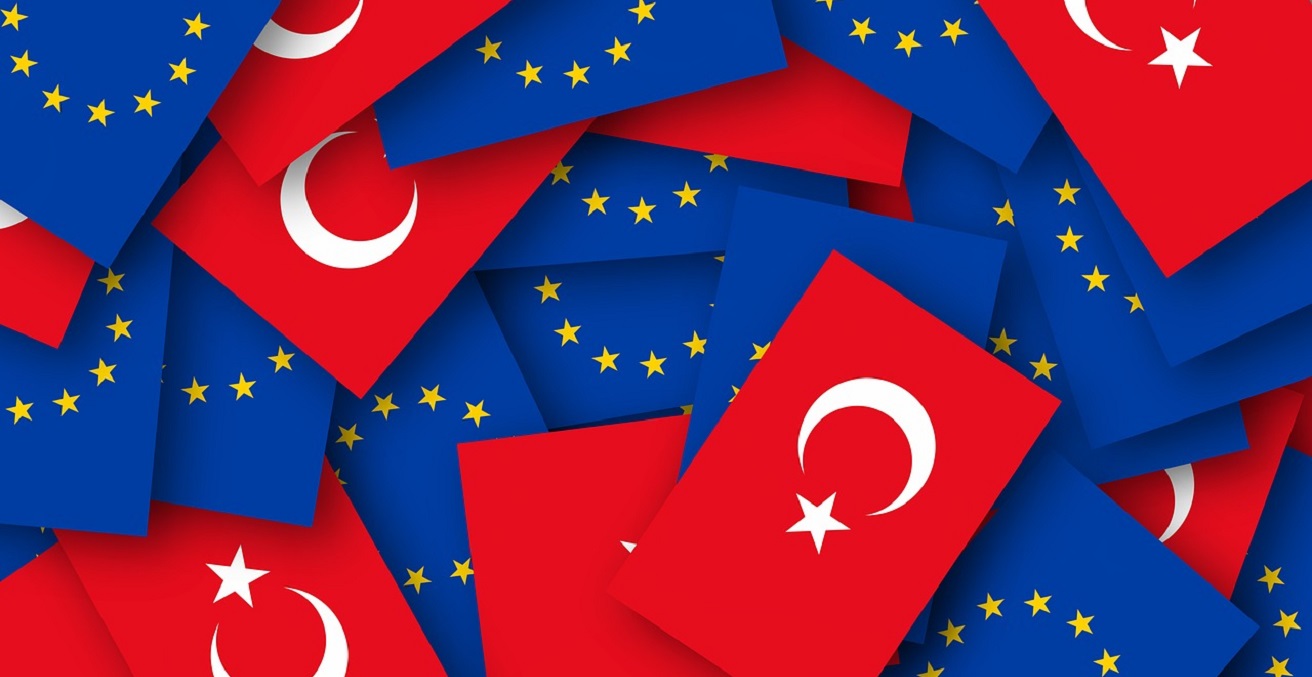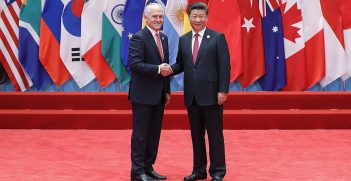Fraught Relations Between Europe and Turkey

For a time, it appeared that the European Union and Turkey were on a convergent path. These days, the differences between Turkey and Europe are significant and worrying.
Current tensions include the disagreements between Turkey and Greece over Cyprus, protests against Turkish drilling operations in the eastern Mediterranean to extract oil and gas, the tension between France and Turkey in the Libyan affair, and Europe’s failure to meet its obligations on the issue of migrants and asylum seekers. In the last two decades, and especially since it started negotiating entry into the European Union, we have seen claims from Europe that Turkey ignores issues such as human rights, minority rights, Kurdish and Alawite issues, civil liberties, the situation of prisoners, freedom of expression and the press, and the independence of the judiciary. But now, another trend has emerged: it is Turkey that is trying to address the issue of refugees, which is sees as critically important. According to official statistics, there are about four million refugees in Turkey, more than 90 percent of whom are Syrian refugees. The European Union is under pressure now because it hasn’t kept its promise of increased protection for the 5.5 million asylum seekers in its territory.
To understand the state of relations between European countries and Turkey, we need to look closely at borders. In most cases, the discussion of Europe’s future focuses on the issues of its major powers, and countries in the margins are overshadowed by these issues. However, the fate of this continent is deeply and inevitably related to what is happening at its margins. No neighbouring relationship is as complex and vague as the one between Europe and Turkey. The answer to the question of what Europe’s general opinion is of Turkey has changed dramatically over the last ten years. When Turkey turned to nationalism and Islamism, the European view of Turkey became systematically negative. Furthermore, over the years, Turkey was once keen to join the European Union, and it has worked tirelessly to achieve this goal, which President Recep Tayyip Erdogan once called Turkey’s long-held dream. However, Ankara is no longer interested in joining the European Union, a position exacerbated after a majority vote from the British people to leave the union. Consequently, Turkey is now focusing on strengthening its regional ties.
Looking to the past, it was not so long ago that Turkey’s acceptance to the European Union seemed hopeful. In 2004, the European Commission concluded that Turkey was sufficiently in line with the political criteria for initiating EU accession talks. All the valid polls in Turkey at the time showed that the majority of the Turkish population had a positive view of Europe and supported the prospect of joining the European Union. Historically, economically, and politically, different generations of Turkish citizens considered themselves to be a part of Europe rather than a part of the Middle East. But in recent years, especially after NATO and the European Union’s silence on the Syrian issue, Turkey has decided to confront terrorist acts on its borders. The presence of the Kurdistan Worker’s Party (PKK), a Kurdish militant and political organisation, in Turkey, Syria, and northern Iraq is the number one national security problem for Turkey. And since then, Ankara has repeatedly expressed its disregard for its allies in NATO who have refused to recognise the PKK as terrorist group. However, this is only part of the picture.
In recent months, Turkey’s support for Libya’s national unity government led by Fayez al-Saraj and its subsequent advances on the ground against General Khalifa Haftar’s forces in eastern Libya have raised concerns among supporters of the general. In addition, Turkey’s efforts to increase exploration in the eastern Mediterranean have angered Greece, South Cyprus, and France. Turkey’s actions are now considered a complete violation of human rights by Brussels. Yet France, a member of the European Union which strongly opposes Turkey’s accession to the bloc, is one of the most important supplier of weapons to the violators of human rights in Yemen and Libya. The hypocrisy of the situation is unmistakable.
Furthermore, an agreement between Egypt and Greece on the demarcation of the two countries’ maritime borders in the Mediterranean is in fact an attempt to reduce Ankara’s influence in the Mediterranean. And this is exactly the problem that Turkey is unwilling to tolerate. Both Egypt and Greece, which happen to be going through difficult political and economic conditions, should expect a serious response from Turkey. Apart from this, France’s support for Greece on the Mediterranean issue and interference in the affairs of the blue borders of the countries in the region will increase the tension between France and Turkey.
In summary, changes in Turkey’s regional strategic policies, as well as the differences between France and Turkey, have made it impossible to advance the negotiations between the European Union and Turkey. Although neither Turkey nor the West want a complete military-security estrangement, the course of events is such that not only can the situation not improve, but even Turkey’s withdrawal from NATO is not inconceivable.
Amin Bagheri is an Iranian research fellow at the International Studies Association in Teh, Iran. His primary research interest lies in international relations, political science, and conflicts in the Middle East. You can see more of his work on Twitter @bghr_amin.
This article is published under a Creative Commons Licence and may be republished with attribution.





